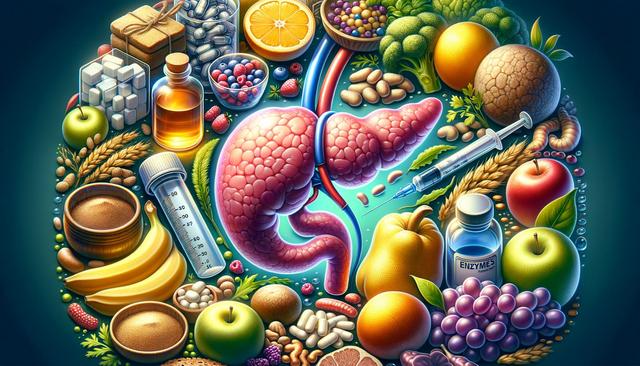Understanding Dry Mouth Syndrome
Dry mouth syndrome, also known as xerostomia, is a condition where the salivary glands do not produce enough saliva to keep the mouth adequately moist. This can be caused by various factors including certain medications, chronic illnesses, aging, or medical treatments such as radiation therapy. Saliva plays a crucial role in maintaining oral health by helping to neutralize acids, wash away food particles, and prevent the growth of harmful bacteria. When saliva production is reduced, individuals may experience discomfort, difficulty swallowing, altered taste, and increased risk of dental issues such as cavities and gum disease.
Recognizing the symptoms early is essential for managing the condition effectively. Common signs include a persistent dry or sticky feeling in the mouth, frequent thirst, cracked lips, a dry or sore throat, and bad breath. If you suspect that you may be experiencing dry mouth syndrome, it is important to consult a dental professional for a proper diagnosis and personalized treatment plan.
Hydration and Lifestyle Adjustments
One of the foundational steps in managing dry mouth syndrome is staying well-hydrated. Drinking water throughout the day helps keep the mouth moist and supports overall salivary flow. However, water alone may not be enough for those with chronic dry mouth, so combining hydration with other lifestyle changes can offer more consistent relief.
Consider the following habits to support oral moisture:
- Sipping water regularly, especially during meals
- Using a humidifier at night to add moisture to the air
- Avoiding alcohol-based mouthwashes, caffeine, and tobacco products
- Chewing sugar-free gum or sucking on sugar-free candies to stimulate saliva
These adjustments not only help relieve symptoms but also contribute to a healthier oral environment over time. Remember, consistency is key to seeing improvement.
Saliva Substitutes and Oral Care Products
When natural saliva flow cannot be adequately restored, saliva substitutes can be a valuable part of daily oral care. These over-the-counter or prescription products are designed to mimic the consistency and function of real saliva, providing much-needed lubrication and moisture protection.
Saliva substitutes come in various forms including sprays, gels, and rinses. Some products also include ingredients that help protect the enamel and reduce irritation. In addition to saliva substitutes, choosing the right oral care products is essential. Look for toothpaste and mouthwash that are:
- Free from alcohol and sodium lauryl sulfate
- Formulated for dry mouth or sensitive mouths
- Fortified with fluoride to protect against tooth decay
Using a soft-bristled toothbrush and brushing gently twice a day can prevent damage to sensitive oral tissues. Flossing daily is also important, although individuals with dry mouth may need to use floss designed for sensitive gums to avoid irritation.
Regular Dental Check-Ups and Preventive Care
Routine dental visits are especially important for individuals dealing with dry mouth syndrome. Because saliva plays such a critical role in defending against oral health problems, its absence increases the risk of cavities, gum disease, and oral infections. Dental professionals can detect early signs of these issues and provide targeted treatments tailored to the patient’s condition.
During dental check-ups, the care team might recommend:
- Fluoride treatments to strengthen enamel
- Antimicrobial rinses to reduce bacterial growth
- Custom trays for applying saliva substitutes or remineralizing gels
These preventive strategies help maintain oral health and manage the symptoms of dry mouth more effectively. Additionally, patients should inform their dentist about any medications they are taking, as many prescription drugs can contribute to dry mouth. Adjusting dosages or switching medications under medical supervision may also be an option.
Stimulating Saliva Production Naturally
For some individuals, stimulating the body’s natural production of saliva is possible through certain techniques and treatments. Chewing sugar-free gum or sucking on xylitol-containing lozenges can trigger saliva flow. Foods that are tart or sour, such as citrus fruits, may also stimulate the salivary glands, although they should be consumed in moderation to avoid enamel erosion.
In more persistent cases, a healthcare provider may prescribe medications that stimulate salivary flow, such as pilocarpine or cevimeline. These medications are typically used when non-prescription options and lifestyle changes are not sufficient. However, they may not be suitable for everyone and can have side effects, so medical evaluation is necessary.
Incorporating the following habits can also aid natural saliva production:
- Maintaining a balanced diet rich in fruits and vegetables
- Managing stress, which can reduce saliva production
- Practicing good oral hygiene to prevent secondary complications
By combining natural methods with professional guidance, individuals can find a personalized routine that works for their specific needs and offers lasting relief from the discomfort of dry mouth.
Conclusion: A Consistent Approach for Lasting Relief
Tired of dry mouth syndrome? Exploring specialized oral health care solutions can offer not just temporary relief, but long-term improvement in comfort and oral function. Managing this condition effectively requires a comprehensive and consistent approach—hydrating regularly, using appropriate oral care products, stimulating saliva flow, and seeking routine dental care are all essential components. No single solution fits every case, but with professional support and tailored strategies, many people experience noticeable improvements. Prioritizing oral health in the face of dry mouth syndrome empowers individuals to protect their teeth, gums, and overall well-being for the future.


